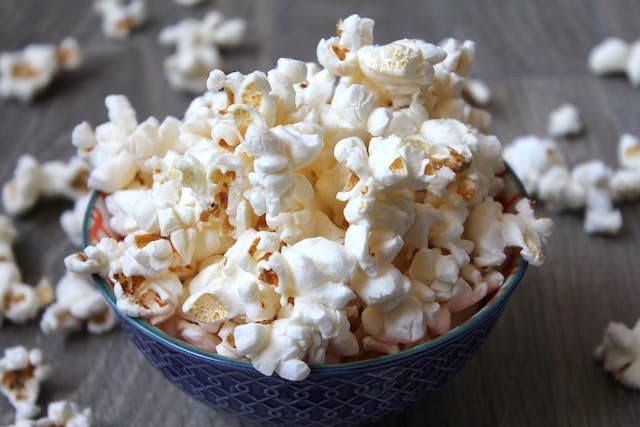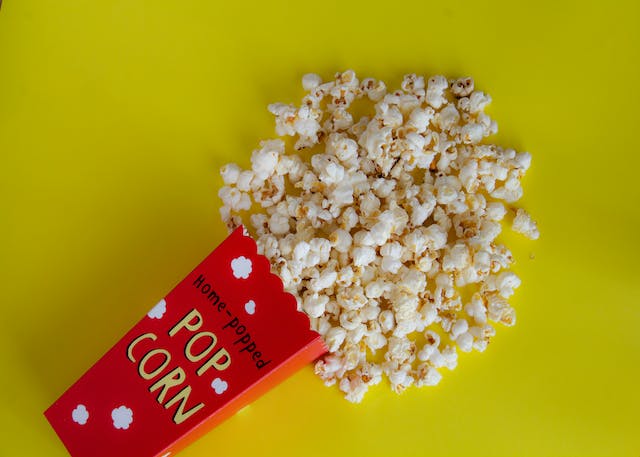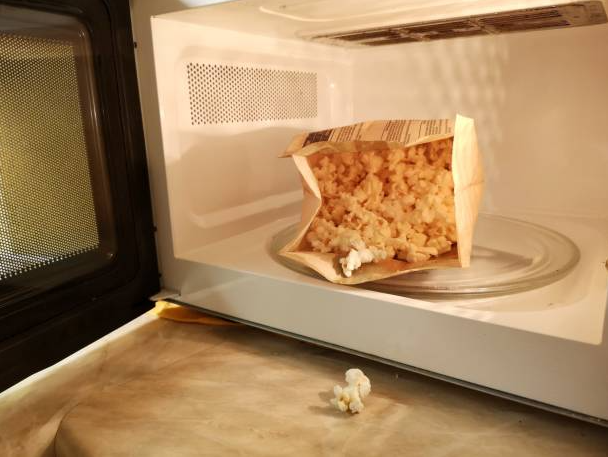Table Of Content
Why Microwave Popcorn Can Be Harmful to Your Health
For a cinematic evening at my place, the snack spectrum spans from a sack of Pirate's Booty to a colossal bowl of homemade stovetop popcorns drowned in butter. However, there's a strict embargo on one particular popcorn variant—those microwaveable wonders sealed in plastic.
Yes, those quick-fix bags that pledge buttery euphoria in mere minutes. While they may satiate our cravings for salty delights, they come laden with an excess of unsaturated fat, sodium, and a cocktail of chemicals we never signed up for. Microwave popcorn? It's a horror show.
There are few reasons why microwave popcorn can be harmful for you, so It is high time you stop putting your popcorn into the microwave and enjoy every bite of death.
Why You Shouldn't Eat Microwave Popcorns?
The sodium content is off the charts. Fatty treats usually demand a generous salt infusion to hit that sweet spot for consumers. Microwave popcorn follows suit. Brands may vary, but many boast 250-300 mg of sodium per serving—up to 15 percent of your daily intake. No wonder we're washing it down with a can of soda!
That bag is a chemical haven. Ever wondered how the artificial butter magic stays sealed within the bag? Enter PFAs, synthetic chemicals ubiquitous in food packaging. Popcorn bags get a coating of PFAs to contain the buttery goodness, but these same chemicals migrate into the popcorn—and consequently, your body. As they take their sweet time breaking down, they accumulate in your bloodstream. Now, that's a chilling thought.

Microwave popcorn isn't just about questionable chemicals and faux flavors; it's also a saturated fat extravaganza, particularly with the inclusion of palm oil. Ignoring the packaging perils and artificial tastes, the reality remains—most microwave popcorn brands pack up to 4 grams of saturated fat per serving, a whopping 20 percent of your daily recommended intake. And mind you, a serving is only about a third of the bag. Who stops at a third?
Now, let's talk about the risk of developing "popcorn lung." That delectable buttery essence and hue we adore? Entirely synthetic. It's a sophisticated chemical blend often featuring diacetyl, a substance that's essentially marked as a poison and linked to bronchiolitis obliterans.

Bronchiolitis obliterans, or the infamous "popcorn lung," induces inflammation in the tiniest lung passages, leading to frequent coughing and breathlessness. So, that heavenly butter aroma? It's not as harmless as it seems.
What To Do Instead?
So, What's the alternative? Popping your own, of course! Skip the excess chemicals and take charge of your popcorn's saturated fat and sodium levels by using a stovetop. It's a breeze—just a pan with a lid, a dash of vegetable oil, and some unpopped kernels. The time investment is comparable to microwaving a bag, and as a bonus, you unlock a universe of flavors, seasonings, and mix-ins. Everything bagel seasoning, taco spice, caramel—your homemade popcorn canvas is boundless!
Author










Top 10 Travеling Tips for Pеt Ownеrs
Best Body Washes For Dry Skin Under $50
8 Best Moisturizers for Mature Skin
How to Curl Your Hair to Make Your Style Last
Barbie Tattoo Ideas for the Doll-Loving Ink Enthusiasts
Selena Gomez and Hailey Bieber Drama Takеs thе Spotlight In Entеrtainmеnt Nеws
Michael Kors Shoes: The Perfect Addition to Your Shoe Collection
Lululemon Yoga Mats: Which One Is Best for You?